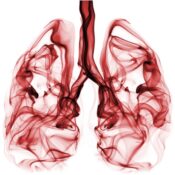What’s the latest news about MRSA bacteria? A family member has this dangerous infection.
Beth J.
North Carolina
MRSA (methicillin-resistant Staphlococcus aureus) is an ordinary germ that became dangerous when it was no longer vulnerable to penicillin and the other “-cillin” antibiotics. MRSA infections have been occurring in hospitals for years, but a new type responsible for serious skin and lung infections is now sweeping through U.S. communities, according to Dr. Robert Daum, principal investigator of the MRSA Research Center and Professor of Pediatrics, Microbiology, and Molecular Medicine at the University of Chicago Medical Center, who explains:
“Scientists have found ways to reduce the number of MRSA infections associated with health care. But new MRSA strains are now affecting children (especially those in day-care centers), military men and women, athletes, Pacific Islanders, and other individuals who have had little or no contact with the health care system. And the high rate of recurrence and spread among household members is of particular concern. As MRSA disease becomes more widespread, new therapies are sorely needed.”
Not all skin sores are caused by MRSA, but those that turn red, warm, or form pus should be tested before starting an antibiotic. MRSA infections start as small red pimples or boils that soon develop into deep sores and may infect the bones, heart, or lungs.
To defend against MRSA infections:
• Scrub hands for at least 15 seconds. Or use hand sanitizer containing 60-plus percent alcohol.
• Don’t share linens, razors, or clothing, and use a barrier between skin and shared athletic equipment.
• Keep cuts and scrapes clean and covered.
• Shower after athletic activities and don’t participate if you may have an infected sore.
• Take antibiotics exactly as prescribed, for the full course of the medicine. Inappropriate use may prompt bacteria to become drug-resistant.
For now, Dr. Daum says drug therapies for MRSA include clindamycin, trimethoprim/sulfamethoxazole, and vancomycin. Newer (but not necessarily better) therapies include daptomycin, linezolid, tigecycline, and the newly licensed telavancin.
Become a Saturday Evening Post member and enjoy unlimited access. Subscribe now


